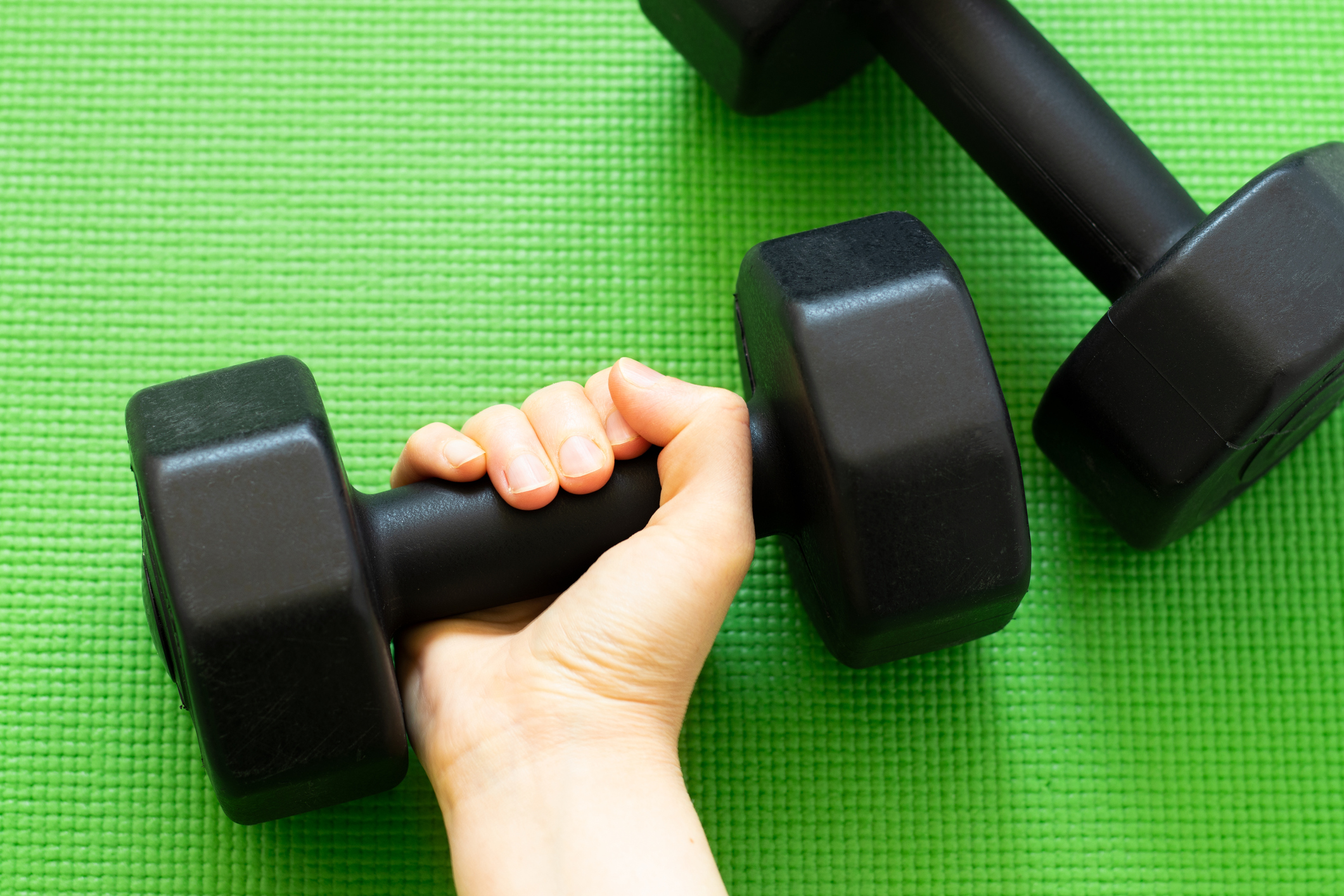Get Easy Health Digest™ in your inbox and don’t miss a thing when you subscribe today. Plus, get the free bonus report, Mother Nature’s Tips, Tricks and Remedies for Cholesterol, Blood Pressure & Blood Sugar as my way of saying welcome to the community!
Get a literal grip to slow your biological age

Have you struggled to open a jar of pickles or salsa lately?
If so, you may want to check your grip strength.
A weak grip is seen as an important indicator of overall muscle weakness and has been linked with a number of health issues. These include a higher risk of heart attack and stroke, poorer brain function, dementia, metabolic disease, reduced mobility, age-related muscle loss (or sarcopenia) and a shorter lifespan.
In fact, grip strength is seen as a better predictor of cardiovascular events, like heart attack, than systolic blood pressure, the clinical benchmark for detecting heart problems.
Studies have shown that grip strength can also serve as a gauge for another crucial health measurement…
A weak grip = faster biological aging
Biological age is based on a host of factors that determine the actual speed at which our bodies are aging. Biological age is why two people can both be chronologically 50 years old but have vastly different levels of risk for disease and early death.
Illness and lifestyle choices contribute to your biological age. And in one study, researchers found more evidence that the weaker your grip, the older your biological age.
Most experts agree that grip strength serves as a proxy for overall muscle strength.
“We’ve known that muscular strength is a predictor of longevity, and that weakness is a powerful indicator of disease and mortality, but, for the first time, we have found strong evidence of a biological link between muscle weakness and actual acceleration in biological age,” says Dr. Mark Peterson, lead author of the study and University of Michigan (U-M) professor.
“This suggests that if you maintain your muscle strength across the lifespan, you may be able to protect against many common age-related diseases,” Peterson adds.
According to Dr. Jessica Faul, study co-author and professor at the U-M Institute for Social Research, one thing that makes this study so strong is that the participants were observed for 8 to 10 years. During this period, lower grip strength predicted faster biological aging measured up to a decade later.
This evidence shows potential for clinicians to adopt grip strength as a method for screening people for future risk of chronic disease, functional decline and early death.
“Screening for grip strength would allow for the opportunity to design interventions to delay or prevent the onset or progression of these adverse ‘age-related’ health events,” Peterson says. He adds that right now, only geriatrics have somewhat incorporated this measure in their practice.
The investigators caution that future research is needed to understand the connection between grip strength and accelerated biological aging, including how chronic inflammation in aging (or “inflammaging”) contributes to age-related weakness and mortality. This inflammation is also linked with lower grip strength.
Any future studies should also focus on how lifestyle and behaviors like physical activity and diet can affect grip strength and biological age acceleration.
“Healthy dietary habits are very important, but I think regular exercise is the most critical thing that somebody can do to preserve health across the lifespan,” Peterson says.
Measuring your grip strength
To get an idea of where your grip strength stands, you can measure it. The most precise way is to use a handgrip dynamometer, like this one I found on Amazon. Your doctor’s office or local gym likely has one of these that you can borrow. Make sure you follow the directions closely to get an accurate reading.
For men, an average grip strength reading is 105 to 113 pounds, while for women it’s 57 to 65 pounds. Anything below these measurements is cause for concern.
If you can’t find access to a dynamometer, there’s also a way to test grip strength using a pull-up bar or hangboard and a bathroom scale.
First, weigh yourself on the bathroom scale and make a note of the number. Then, place the scale under the bar or board, stand on it and grab the bar or board with your hands.
Without bending your elbows or using any other part of your body other than your hands, pull your weight up for 5 seconds. Record the reading on the scale at the end of those 5 seconds.
Subtract that number from your body weight and you’ll have a good estimate of your grip strength in pounds.
Once you get that measurement and know whether your grip strength needs work, you can take action to increase it. You can use those hand grippers you’ve seen at the gym or even one of those stress balls you see on office desks everywhere.
Or you can use one of these suggestions for ways to exercise your hands so that you hold on to that precious grip strength as you get older.
Editor’s note: Did you know that when you take your body from acid to alkaline you can boost your energy, lose weight, soothe digestion, avoid illness and achieve wellness? Click here to discover The Alkaline Secret to Ultimate Vitality and revive your life today!
Sources:
Is muscle weakness the new smoking? —Michigan Medicine Health Lab
Weak Grip a Strong Predictor of Metabolic Disease and Disability in Adults — Michigan Medicine Health Lab
Handgrip Strength Test — Topend Sports
The Grip Strength Test: Ways To Measure Your Grip — Complete Strength Training















